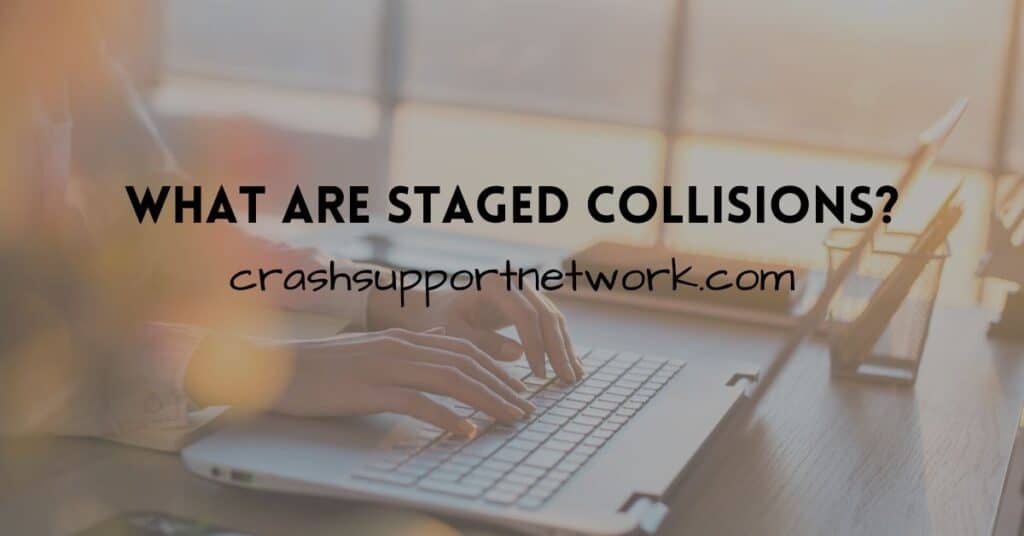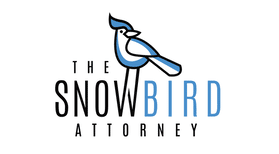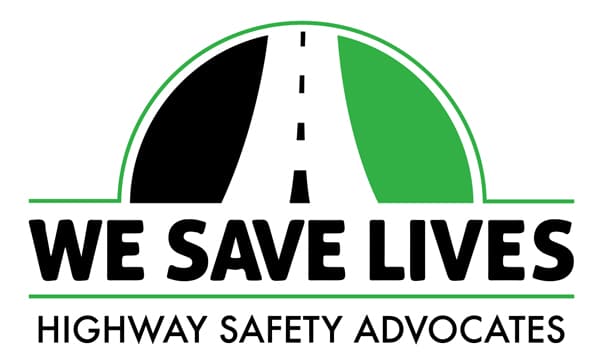
Staged Collisions are when a con artist deliberately causes a collision in such a way to make you look at fault and without any evidence to prove your side of the story. Yes, it’s true that staged collisions are happening and as a survivor of a horrific motor vehicle crash, I was shocked that these types of incidents even existed. It’s important to know the types of scams that con artists try to pull involving auto collisions that every driver should be aware of.
Here Are Some Common Ways:
Right of Way — the con artist has the right of way at an intersection but indicates that you should go ahead, but they cut in front of you to cause a collision. The con artist driver will then deny that they made any gesture to give up the right of way, and since they had the right of way the victim seems at fault.
Rear-Ending — the con artist is driving in front of you and they deliberately slam on the breaks suddenly catching you off guard and you cannot react fast enough. Even though the con artist caused it deliberately, it is often assumed that if you rear-end a vehicle that you are the one at fault. Always make sure to keep a safe distance from any vehicle ahead of you and always follow the right-of-way rules on the road. Be very cautious if someone tries to give up their right of way to avoid getting involved in a staged collision.
Referral Scams
Referral scams involve someone acting extremely helpful and they try to pressure you into either giving up personal information or going to a particular repair shop, personal injury lawyer or other service that they have a business relationship with.
Fake Samaritans — the con artist travels around looking for collisions on the side of the road. When they find one, they approach and act helpful. They will refer you to a particular repair shop, doctor, or lawyer and might also try to get access to your insurance information so they can start submitting false claims. Don’t speak with anyone at a collision site except for the police.
Tow Trucks — some tow truck drivers will refer you to a specific repair and body shop so they can receive a referral fee but to make up for the referral fees, the truck driver and/or repair shop will raise the fees that you have to pay. If you or your insurance company refuse to pay them, the repair shop could sell your vehicle to cover the fees.
How Do You Spot & Avoid These Scams?
Always look for municipal license information on the tow truck and be wary of any unsolicited advice from random people who were not involved in the collision. Do not sign anything except for the police report without consulting with a personal injury lawyer. If the injuries seem unrealistic for the level of collision be sure to take note.
If you think you have been involved in a staged collision make sure to count the number of passengers in the other vehicle. If possible, get their individual names, addresses and telephone numbers. Often more people will file claims than were actually in the vehicle when the collision occurred. Staged collisions usually involve the driver telling the police an inaccurate account of what happened.
Take lots of pictures, document everything you can, and get the information of any witnesses willing to state what they saw. If anyone is reporting an injury, make sure you call the police to the scene even if they are resisting so you have their report as evidence. Take note if “witnesses” suddenly appear when the crash happens especially if it is in an isolated area.
If You Are Injured & Receive Treatment from Health Care Providers
Some insurance fraud also involves health service providers such as chiropractors, massage therapists or physiotherapists who could falsify health treatments with or without your knowledge. This allows fraudsters to get payment for health care services that were never provided.
To prevent this type of fraud from happening, keep records of your treatments and compare them against the invoices and statements you receive from your health care provider or from your insurance company. Never sign blank insurance claim forms as they could be used to make claims for treatments that did not occur.
As a driver, you are always responsible for your actions behind the wheel. Staged Collisions are dangerous to drivers and put innocent drivers at risk. You should always call the police if you suspect illegal activity.
S. Dawne McKay is a survivor of a horrific crash that changed her life forever. Dawne shares her personal journey as a Crash Survivor Blogger and also collaborates with crash survivors as Guest Bloggers allowing them an opportunity to share their stories. Dawne is also the author of the book, “Talk Crash to Me – What to Expect After Surviving a Collision and How to Manage Your Recovery” which is available for purchase on Amazon.
The Crash Support Network is a unique one-of-a-kind website consisting of an online support group, a crash survivor blog, a quarterly newsletter, “Sharing Our Recovery” as well as highly informative articles. Our website is based on relationship-building and puts the needs of survivors first by creating a helpful resource for victims and survivors of motor vehicle crashes.





